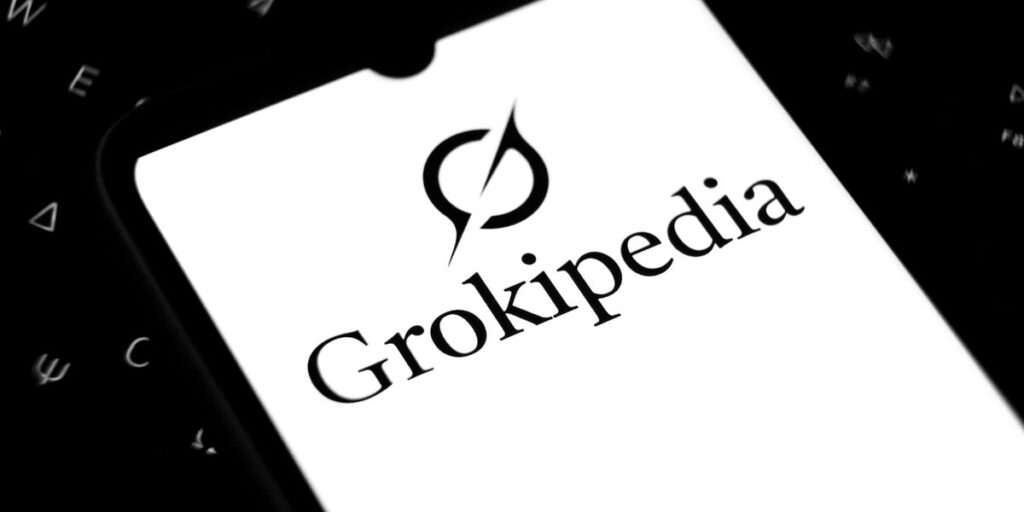I’ll admit that I’m pretty skeptical about the results of xAI’s new Grokipedia and its mission to be an anti-woke version of Wikipedia.
Still, after playing with it a bit, I was surprised to find that it was better than Wikipedia in some cases.
Of course, entries for topical items like “Elon Musk” and “gender” are exactly what you would expect from its “impartial” mission. I’ll stop talking about this because thinking about it too much will give me a headache.
However, most pages are not hotbeds of “wokism” and end up being almost word for word identical to Wikipedia. (Wikipedia allows scraping by AI bots, so Grokipedia can basically copy from Wikipedia). So far, Grokipedia has about 800,000 pages, while Wikipedia’s English version has over 7 million pages.
xAI did not respond to a request for comment on how the Grokipedia pages were selected.
For example, one of the first comparisons I made was to the 2008 animated film Bolt, in which John Travolta voices the superhero dog. (I happened to be looking at the Wikipedia page recently while my kids were watching a movie.) As you can probably imagine, this isn’t a particularly political entry.
Like most movie entries, Grokipedia provides a summary of the plot, production details, cast list, and critical reception. (I asked ChatGPT to compare the two articles to see which one had more “bias.” And in the case of AI vs. AI crime, ChatGPT accused Grok of having a pro-corporate bias by just taking Disney executives’ word for it on some production elements. Ha!)
Where Elon Musk might be thinking something on Grokipedia
After browsing Grokipedia for a while, I found a few things that looked particularly promising.
Related articles
The kind of pages that Grokipedia seemed to be able to beat over Wikipedia were Wikipedia’s unloved, disjointed entries. It seems like a bunch of people have added to a single sentence once a year for the past 15 years. When writing lacks coherence, small details are given equal emphasis alongside important facts, and the result is generally confusing.
An example is shown below. I recently looked up the Wikipedia entry for Dana Hall School, an exclusive girls’ private school near Boston that was attended by a recent Nobel Peace Prize winner. This entry isn’t short, but it’s disorganized, with a long “history” section that reads like a disjointed list of bullet points.
On the other hand, I felt the Grokipedia version was more thorough and organized into sections on history, academics, facilities, admissions, and impact. This is one of the many hard pieces of information that exists on the internet, more information than has ever been added to a Wikipedia page by an actual human, and AI can scour the web to find these sources and convert them into text. (Note: I haven’t fact-checked the Grokipedia entries; there’s a good chance all sorts of things are wrong!)
However, please note that there are some special aspects to this entry. There’s an entire section about the pros and cons of single-sex education, and a discussion about racial diversity in schools, which more than smacks of an anti-DEI agenda. I’m starting to have a headache again, so I’ll put that aside for now.
AI may help Wikipedia
What I can see is a version where AI can flesh out certain types of articles and improve them with additional information from trusted sources. After researching, I found several other cases like this. Small towns, which are barely mentioned on Wikipedia, are more well-documented on Grokipedia.
One interesting example: If you click on “random article” on Wikipedia and search for the corresponding Grokipedia entry, you’ll find an interesting case where the two entries are slightly different.
Wikipedia has an important entry on the case of Baroness Marie Vetsera, a woman involved in a minor royal scandal in the 18th century. However, the one from Grokipedia was even longer and had a completely different format. And frankly, I thought Grokipedia told the story of the Baroness’s untimely death better. But I also had some bad habits. For example, Grokipedia used a quote from a Facebook page about royal history that appeared to be viral clickbait written by AI.
Obviously, Grokipedia isn’t perfect. It’s far from perfect. But it’s an interesting idea about how AI could help improve Wikipedia itself. You can smooth out awkward sentences or fill in pages that need improvement.
Jimmy Wales, founder of Wikimedia, the nonprofit that runs Wikipedia, recently appeared on NPR’s debate show and said he is not opposed to AI assistance. He gives the example of an editor looking at a page that needs improvement and asking AI to identify additional relevant facts in the sources already on that page. Editors can then validate them and add them themselves. That’s reasonable!
I’m not going to switch to Grokipedia for factual information any time soon, and I don’t recommend doing so.
In some ways, the best outcome would be for Wikipedia to use Grokipedia as a kind of sandbox to see what works and what doesn’t, and learn lessons from it.




